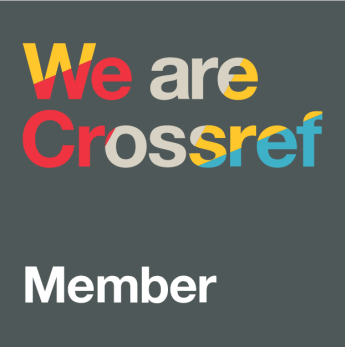KONSELING KELUARGA BERBASIS KOGNITIF PERILAKU UNTUK MENINGKATKAN PARENT CHILD QUALITY RELATIONSHIP PADA IBU DAN ANAK PELAKU PHUBBING DI KELURAHAN KALIJAGA
DOI:
https://doi.org/10.22460/quanta.v6i2.3166Keywords:
Konseling Keluarga, Parent Child Quality Relationship, PhubbingAbstract
Penelitian ini bertujuan untuk mengetahui efektivitas konseling keluarga berbasis kognitif perilaku untuk meningkatkan parent child quality relationship pada pasangan ibu dan anak pelaku phubbing di Kelurahan Kalijaga. Penelitian ini menggunakan desain penelitian quasi eksperimen non randomaized pretest and posttest control group design. Partisipan penelitian ini dibagi ke dalam dua kelompok, kelompok kontrol dan kelompok eksperimen. Konseling ini hanya diberikan pada pasangan ibu dan anak yang memiliki skor phubbing tinggi dan telah melalui proses asesmen awal. Partisipan diminta untuk mengisi Generic Scale of Phubbing (GSP) versi bahasa Indonesia yang didasarkan pada teori phubbing Chotpitayasunondh & Douglash (2018) serta skala Parent Environmental Questionnaire (PEQ) untuk mengukur parent child quality relationship sebelum dan sesudah pemberian perlakuan. Hasil dari penelitian ini menunjukkan signifikansi p=0,018 (p < 0.05) untuk perbandingan g score pretest dan posttest kelompok eksperimen dan kontrol. Dengan demikian, konseling keluarga berbasis kognitif perilaku mampu untuk meningkatkan parent child quality relationship pada pasangan ibu dan anak pelaku phubbing di Kelurahan Kalijaga. Data pun menunjukkan terdapat penurunan skor phubbing sebelum dan sesudah perlakuan.
References
Adiyatma, R.,et al. (2020). The contribution of self control towards students smartphone addiction. Schoulid: Indonesian Journal of School Counseling. 1(5), 45-49
Afdal. A., et al. (2019). An analysis of phubbing behaviour: preliminary research from counseling perspective. Atlantis Press. Vol 295, 270-275
Alsa, A. (2010). Pendekatan Kuantitatif serta Kombinasinya dalam Penelitian Psikologi. Yogyakarta : Pustaka Pelajar.
Badan Pusat Statistik. (2018). Statistik Telekomunikasi Indonesia. Jakarta: Katalog BPS
Chotpitayasunondh, V & Douglas, K.M. (2018). Measuring phone snubbing behaviour: development and validation of the generic scel of phubbing (gsp) and the generic scale of being phubbed (gsbp). Computer in Human Behaviour. Vol 85
Chotpitayasunondh, V & Douglas, K.M. (2018).The effects of phubbing on social interaction. Journal of Applied Social Psychology. Vol 25 (21)
Chotpitayasunondh, V & Douglas, K.M. (2016). How phubbing becomes the norm: the antecedents and consequences of snubbing via smartphone. Computer in Human Behaviour. Vol 63, 9-18
Departemen Pendidikan Nasional. (2008). Kamus Besar Bahasa Indonesia Pusat Bahasa. Jakarta : PT.Gramedia Pustaka Utama.
Habsy, B. A. (2017). Model konseling kelompok cognitive behavior untuk meningkatkan self esteem siswa SMK. Perspektif Ilmu Pendidikan, 31(1), 21-35.
Hanika, I.M. (2015). Fenomena phubbing di era milinea (ketergantungan seseorang pada smartphone terhadap lingkungannya). Jurnal Ilmu Komunikasi. Vol 4, (1), 42-51
Hurlock, EB (2012). Psikologi Perkembangan: Suatu Pendekatan Sepanjang Masa Kehidupan. Jakarta: Erlangga
Isrofin, B & Munawaroh, E. (2020). The effect of smartphone addiction and self control on phubbing behaviour. Jurnal Kajian Bimbingan dan Konseling. 6(1), 15-23
Jose, P. E., & Lim, B. T. (2014). Social connectedness predict lower loneliness and deppresive syomptoms over time in adolescents. Open Journal of Depression. Vol 3, (), 154-163
Kang, S. K., & Chasteen, A. L. (2009). The development and validation of the age-based Karadag, E., et.al. (2015). Determinants of phubbing, which is the sum of many virtual addictions: A structural equation model. Journal of behavioural addictions. Vol 4, (2), 60-74.
Kirckpatrick, D.L (2006). Evaluating Training Programs-Second Edition. Barret Kohler Publisher Inc, San Fransisco.
Lee, R. M., & Robbins, S. B. (1995). Measuring belongingness: the social connectedness and the social assurance scales. Journal of Counselling Psychology. Vol 42, (2), 232-241
Lee, R. M., Draper, M., & Lee, S. (2001). Social connectedness, dysfungtional interpersonal behaviours, and psychological distress: Testing a mediator model. Journal of Counseling Psychology. Vol 48 (3), 310-318
Millings, A., et al. (2012). School connectedness, peer attachment, and self esteem as predictors of adolescents depression. Journal of Adolescents. Vol 35, (4), 61-67
Oemarjoedi, A. K. (2003). Pendekatan Cognitive Behavior dalam Psikoterapi. Jakarta: Kreatif Media.
Pathak, S. (2013). McCann Melbourne made up a word to sell a print dictionary: New campaign for Macquarie birthed ‘phubbing’. Diakses dari http://adage.com/article/news/mccann-melbourne-made-a-word-sell-a-dictionary/.
Parmaksiz, I. (2019). Relationship of phubbing, a behavioural problem, with assertiveness and passiveness: A study on adolescents. International Online Journal of Eductional Science. Vol 11, (3), 34-45
Prayitno. (2017). Konseling Profesional yang Berhasil: Layanan dan Kegiatan Pendukung. Jakarta: Rajawali Pers
Ranie, L., & ZIckuhr, K. (2015). Americans’ views on mobile etiquette. Pew Research Center. Available at: http://www.pewinternet.org/2020/04/21/americans-views-on-mobile-etiquette/.
Saripah, I. (2010). Model konseling kognitif perilaku untuk menanggulangi bullying siswa. In International Confrence on Teacher Education: Join Conference UPI dan UPSI Bandung, Indonesia (pp. 8-10).
Seniati, L., Yulianto, A., dan Setiadi, BN. (2011). Psikologi Eksperimen. Jakarta : Indeks
T’ng. S., Ho. K.H., dan Low. S. K. (2018). Are you phubbing me? the determinants of phubbing behaviour and assessment of measurement invariance across sex differences. Journal Social Science. Vol 7, (2), 60-74
Tribunnews.(2019). Tren Korban Kecanduan Gadget Terus Naik, Sudah 209 Anak Dirawat di RS Jiwa Cisarua, diakses di https://wartakota.tribunnews.com/2019/10/15/tren-korban-kecanduan-gadget-terus-naik-sudah-209-anak-dirawat-di-rs-jiwa-cisarua.
Turnbull, J. (2010). Oxford Advanced Learner’s Dictionary. New York : Oxford
Verma, S., Kumar, R., Yadav, S.K. (2019). The determinants of phubbing behaviour: a millennials perspective.
Downloads
Published
How to Cite
Issue
Section
License
Copyright (c) 2022 QUANTA

This work is licensed under a Creative Commons Attribution-ShareAlike 4.0 International License.
The author is responsible for acquiring the permission(s) to reproduce any copyrighted figures, tables, data, or text that are being used in the submitted paper. Authors should note that text quotations of more than 250 words from a published or copyrighted work will require a grant of permission from the original publisher to reprint. The written permission letter(s) must be submitted together with the manuscript.













